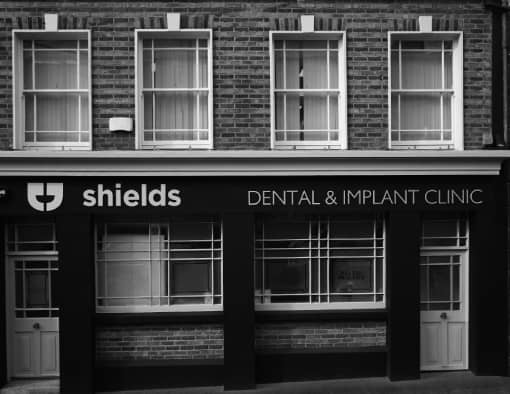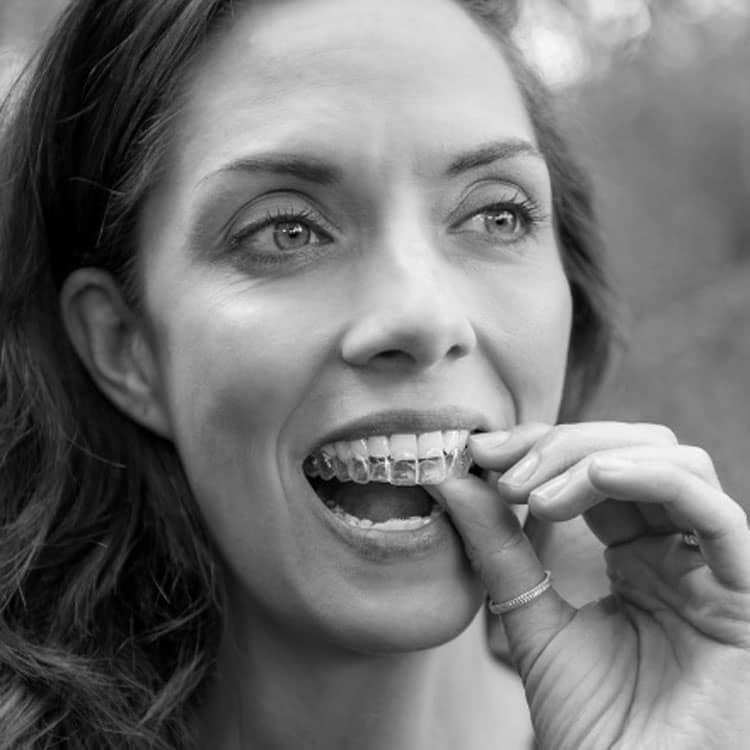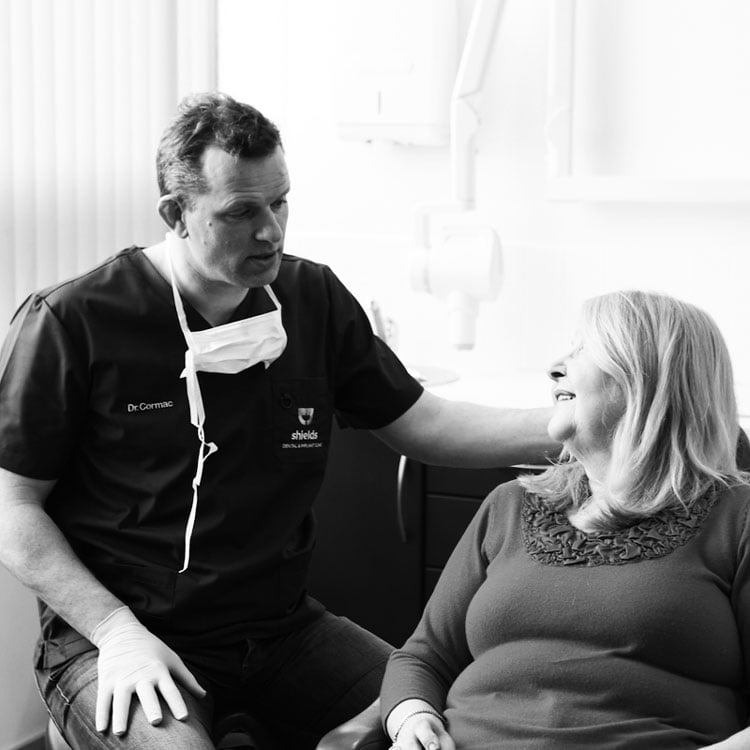Cover and strengthen teeth.
Giving them a second life.

Restore your
smile.
Crowns are so versatile they can restore your smile by adding strength and structure and often last a lifetime. They repair tooth damage caused by a variety of reasons: an accident, grinding, improper bite, age, large fillings and tooth decay. Often causing wearing, cracking or breakage.
Improved
appearance.
Dental crowns cover the entire visible surface of your affected tooth. A crown is usually placed when there is insufficient tooth structure to hold an ordinary filling or to improve the appearance of a tooth. The crown fits over the remaining part of the tooth, making it strong and giving it the shape and contoured appearance of a natural tooth.

FAQs.
Invisible Item
What are crowns made of?
Most crowns are made from porcelain bonded with non-precious metal. The metal base is made, and layers of porcelain are applied over it. There are alternatives, and new materials are frequently introduced to the production of crowns. Here are some of the options currently available at Shields Dental & Implant Clinic:
- Porcelain: these are not as strong as bonded crowns but look very natural. They are used most often for front teeth.
- Porcelain & Composite: crowns made from porcelain and composite resin materials often look the most natural. However, these crowns are not as strong as the bonded metal crown
- Precious Metal (gold and palladium): these crowns are very strong and hard-wearing. They are usually used at the back of the mouth, where they will not be highly visible.
How is a tooth prepared for a crown?
The dentist prepares the tooth to the ideal shape, removing most of the outer surface to leave a strong inner ‘core’. The amount of tooth removed will be the same as the thickness of the crown to be fitted. Once the tooth is shaped, the dentist takes one impression of the prepared tooth; another impression, of the opposite jaw; and possibly a third to indicate your bite.
Who makes the crown?
A dental technician, skilled in making crowns, takes from the dentist the impressions and any other information about your teeth, including shade, and makes a model of your mouth, on which the crown will be made to ensure a perfect fit.
Will the crown be noticeable?
No. The crown is made to match your other teeth exactly taking every detail of your mouth into account, including the shade of the neighbouring teeth. A temporary plastic crown is fitted at the end of the first appointment to last until the permanent one is ready. These may be more noticeable but are only in place for about two weeks.
How long does treatment take?
At least two visits are required: the first for preparation, impression, shade-taking and fitting the temporary crown; and the second to fit the permanent crown.
Does it hurt to have a tooth prepared for a crown?
No. Local anaesthetic is used and the preparation feels no different from a filling. If the tooth does not have a nerve, and a post-crown is being prepared, then local anaesthetic may not be required.
How long does a crown last?
The life of a crown depends on how well it is looked after. The crown itself cannot decay, but decay can start where the edge of the crown joins the tooth. It is very important to keep this area as clean as your other teeth. Properly cared for crowns will last for many years. Ask your dentist for further information.
How are crowns fixed to teeth?
Once the fit and appearance of the crown has been checked—and approved by you—it is affixed with special dental cement, which also forms a seal that helps to hold it firmly in place.
Will the crown feel different?
Because the crown will differ slightly from the shape of your tooth before it was crowned, you may be aware of it to begin with. Within a few days, you should not notice it. If it feels uncomfortable, or higher than the surrounding teeth, it can be adjusted by your dentist.
Is there any alternative?
A veneer may be an alternative to having an anterior crown. Your dentist will advise you of any suitable alternatives.
Why would I need a crown?
There are a number of reasons, including:
- Weakening of the tooth by a large filling
- You may want to improve the appearance of a tooth that is marred by discoloured fillings.
- To protect a root filling
- To repair a tooth damaged in an accident
- To help hold a bridge or denture firmly in place
Our
treatments.
From the regular check-up to the specialist and advanced treatments that are needed throughout life, we always use state-of-the-art equipment and latest recommended techniques.

Open 7 days*
Highly trained specialists and dentists
Your safety is guaranteed in our hands
Payment options
Technically advanced
Convenient locations
No obligation consultations
Find out what makes us different.
Recent Reviews.

SCR, Limerick, Shields Dental & Orthodontic Clinic

Castletroy, Limerick, Shields Dental & Orthodontic Clinic

Roscrea, Tipperary, Shields Dental & Orthodontic Clinic

Blackrock, Dublin, Shields Dental & Orthodontic Clinic
Convenient
locations.
You don’t have to go to Beverly Hills to look good, you can go local. In convenient locations in Limerick, Castletroy, Roscrea and Blackrock Dublin. Comfortable but advanced, friendly but professional. Click on your preferred location in the menu or use the arrows to discover more.
For the
smile you have
always wanted.
Use our FREE consultation service to speak to one of our Treatment Coordinators, who give you information about how we can help, without any financial commitment.
Most importantly it helps to build your confidence in starting your journey with Shields to the smile you have always wanted.
We’ll discuss with you what you would like to achieve with your dental health and the appearance of your smile, answer any questions and listen to any problems you may have had with your teeth in the past.








